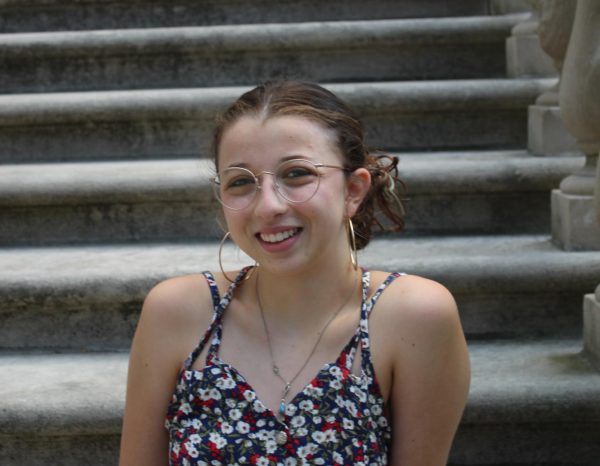During the week of the presidential election, students and faculty alike waited for the results. From election night through Friday, the halls bustled with conversation. Results still hadn’t come in and were at the forefront of everyone’s mind.
In anticipation of this, the WIS administration allotted specific times to discuss this election, conversations during advisory regarding the students’ feelings and worries surrounding the election. Advisors were sent guiding questions and a lesson to guide students.
The conversations pertained more to the emotional and personal aspects of the election, instead of the political substance of it, which frustrated some students.
“Everyone is trying so hard to be politically correct, that no one’s opinion is respected because they don’t voice what they think,” freshman Jenna Loescher-Clark said.
“Everyone is trying so hard to be politically correct, that no one’s opinion is respected because they don’t voice what they think,”
freshman Jenna Loescher-Clark
Consequently, some advisers barely spoke about the candidates to avoid conflict. While Loescher-Clark understands this move, she still opposed it.
“Regarding politics, there needs to be conflict,” Loescher-Clark said. Her group never had a conversation that she found meaningful, she was left wanting more out of that discussion.
Senior Vanessa Schor said she disagreed with the way the topic was approached because the conversation started off with heavy questions that people did not necessarily know how to answer. However, unlike Loescher-Clark, Schor felt her group did eventually end up having a meaningful conversation.
She said that this was possible because some people were very open and honest, and this encouraged other students to follow suit. However, due to the four years that her advisory has spent together, they have built up trust and respect for one another.

Loescher-Clark suggested that upperclassmen could have replaced advisors during these conversations. Schor agreed with Loescher-Clark that those conversations might have been more successful for the community if done between upper-class students and lower-class students.
“It’s good that students at the high school age are thinking about the election…it’s good to have these discussions,” math teacher Andrew Sopher said. He also said that when conversations do arise about candidates and policies, he tries to avoid absolute statements and navigate the topic from a logical standpoint.
This was a strategy that he put into place to keep his classroom open; meaning he used his class time for discussions while also trying to mediate so students were not expressing their view in a way that could cause harm. By keeping his classroom open, productive conversations were held and were allowed to happen more naturally.
US English teacher Karin Tooze expressed how tricky the conversation around the election is because it is such a polarizing topic. This is a common sentiment within the community, and especially with staff as they maneuvered their way through election week.
“I don’t feel like I have had a lot of substantive conversations about issues with students,” Tooze said. She mentioned that the conversations that took place in advisory were centered on feelings rather than the more separating aspects of the candidates.
The administration made the decision to hold these discussions. Assistant Principal for Grades 9 and 10Allison Ewing explained the reason the conversations were geared towards feelings was so they would plant the seed in students that might not see themselves as political actors, while still talking about politics.
Ewing said that one of the main reasons for the discussions being structured in such a way was due to the fact that politics can be deeply personal and people tend to get very passionate about them, which may create an unhealthy environment.
“Shifting the focus [of the conversation] a little bit helps to see it in a different light, almost like if you take a prism and you hold it up to the light,” Ewing said. “You see it refracted differently, and you’re trying to change your relationship with it.”
Not all the decisions were made by Ewing. Assistant Principal for the IB Diploma Program James Bourke also had a say in them. Although Bourke said that Ewing was the one who made the most decisions regarding how to guide the conversations, the main reasoning behind the decision was that the administration did not want it to seem that the school was pushing any sort of political agenda or opinion.
“There’s totally a role for discussing current events in the candidates. I don’t know that the advisory program is the place for that,” Bourke said.
This experience can be used in the future for learning and eventually improving. In hindsight, Bourke and Ewing said they would have changed their approach to this conversation. “I think the main thing would have been having a contingency plan for not knowing the outcome of the results,” Bourke said.



































































